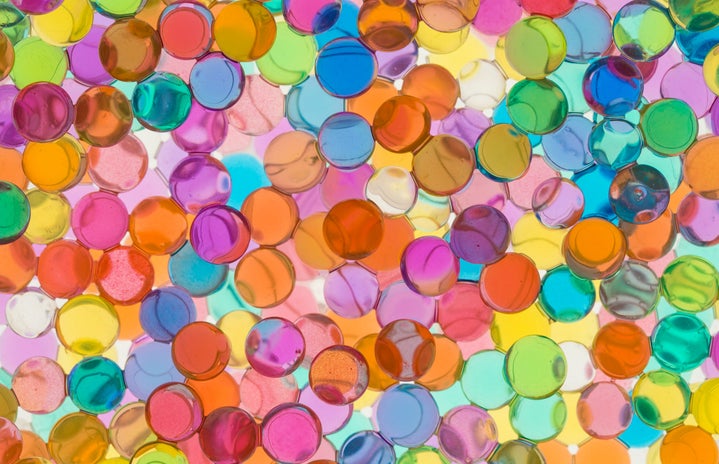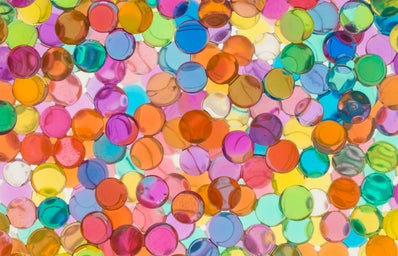I was 12 when I started drinking coffee – I remember my first time like it was yesterday. It was the first day of summer following sixth grade, and I was in the car with my mom and my best friend on the way to a Girl Scout camping trip. I had woken up at 5am, I had gone to bed late the night before, and I was miserable. I was the epitome of a hormonal, grumpy pre-teen and my mom couldn’t stand it. That’s why, about 20 minutes into the drive, my mom made a bee-line for the Starbucks drive-thru. After ordering an Americano for herself, she ordered me a mocha, and told me it would make me feel more energized and get me out of my funk. The mocha was a perfect segway – it wasn’t too bitter or strong, but the caffeine was there and the effects of it were felt. My mood changed instantly. This was the start of what I now consider to be a very toxic habit.
Coffee wasn’t a constant for me in middle school – instead, it was something I relied on after nights of no sleep, or something I enjoyed occasionally with my mom on her porch on Saturday mornings. I didn’t need it to function, but I did drink it at least once a week. It wasn’t until high school, though, when my days got longer and homework became more stressful, that I started drinking it regularly. It became routine – after getting up at 5:30am, I’d head straight to the Keurig and fix myself a cup. I was wholeheartedly dependent on it. Not only was I addicted to the caffeine, but I found coffee to be comforting and soothing. I never thought to be concerned about it, mostly because having a reliance on coffee is so normalized. If anything, it made me feel more mature. Weirdly enough, I never saw coffee as the culprit for my struggles with anxiety. I have always been an easily anxious person, but my anxiety became really bad around my junior year. This was when my coffee drinking reached its peak – I averaged about 3 cups a day. I was constantly fidgeting, picking at my nails, and shaking. My brain would fixate on small issues and stress about them for days. I couldn’t relax or enjoy my life. I had irrational thoughts all the time, and I felt like there was something wrong from me. This prevented me from doing normal things, like driving by myself after dark, going to concerts and other crowded events, and traveling. This lasted for a few years, as did my dependence on coffee.
I don’t know why it took me so long, but I finally made the connection that coffee ~might not be helping my anxiety issues~ a few months ago. I started doing yoga on Tuesdays and Thursdays before classes, and, as a result, I didn’t have enough time to grab coffee in the morning. Strangely enough, I found that, not only was I less anxious and fidgety on these days, but I also had more energy throughout the day. It was easier to power through. Once I noticed this pattern, I decided it might be worth a try to give up my daily morning coffee for good.
My first day without coffee (with no exercise in the morning to help boost energy), I was tired. Like, really tired. I then decided that it might be more realistic to replace coffee with tea – there’s still caffeine in tea, but it’s not nearly as much as the amount of caffeine in coffee, and tea has health benefits that aren’t found in coffee. For example, according to Today, white tea has been proven to contain a ton of antioxidants, and green tea has been proven to reduce risk of heart attack and stroke. Most importantly, though, the caffeine in tea has had a much less toxic effect on me than the caffeine in coffee – I’ve noticed my anxiety is no longer as present as it used to be. When I was still drinking coffee, I would have irrational “what if’s” that would pop into my head, and I would think about and obsess over them for hours. Though these thoughts still appear from time to time, my brain no longer fixates on them, and in turn keeps me from ever feeling very scared or anxious (unless I’m in a situation where I should be feeling scared or anxious). I feel like I’m much more rational as a result, and I’m finally able to really trust my gut feeling, which I haven’t been able to do in so long. However, I still fidget and pick at my nails. I find that, even if I’m absolutely exhausted, I will always be unable to sit still. This is something that I’ve come to accept as a result of drinking coffee so consistently for four years. There is the possibility that my restlessness will decrease, but there is also the possibility that it won’t.
Giving up coffee has had a very positive, freeing effect on my life. Has it eliminated all traces of anxiety? No. Anxiety is very complicated, and there are many reasons behind why one experiences it and ways to reduce it. Giving up coffee is not the one and only answer to getting rid of anxiety for good. However, if you are an anxious person, like myself, I do think that coffee can worsen the effects of anxiety, and I have noticed a difference in my own anxiety symptoms since giving it up. In addition to this, I also feel like I drag a lot less, and I have a lot more energy. Does this mean I won’t enjoy an occasional cup of coffee every once in a while with family and friends? Of course not. In fact, for the first time in a month, I had a cup of coffee yesterday with my best friend’s family at Easter brunch, and I fully enjoyed it. However, I don’t need it to get through my day anymore, and now that I’m not drinking it regularly, my perspective is no longer clouded by caffeine.



